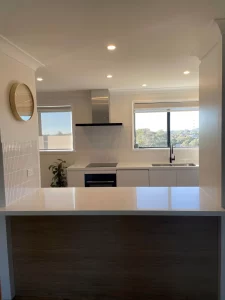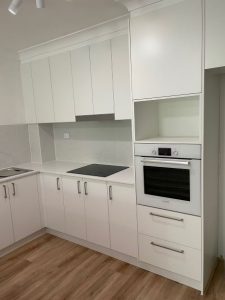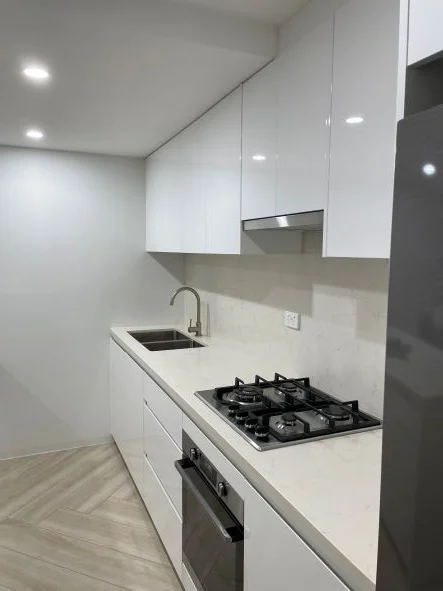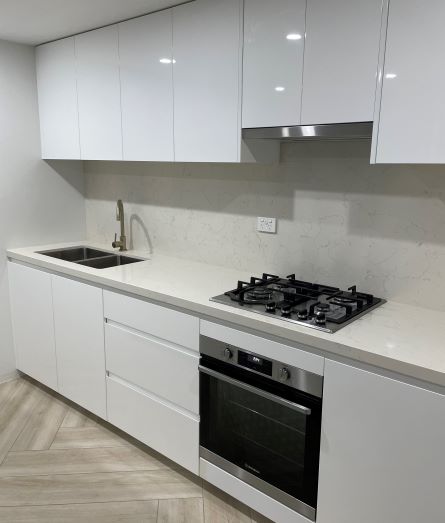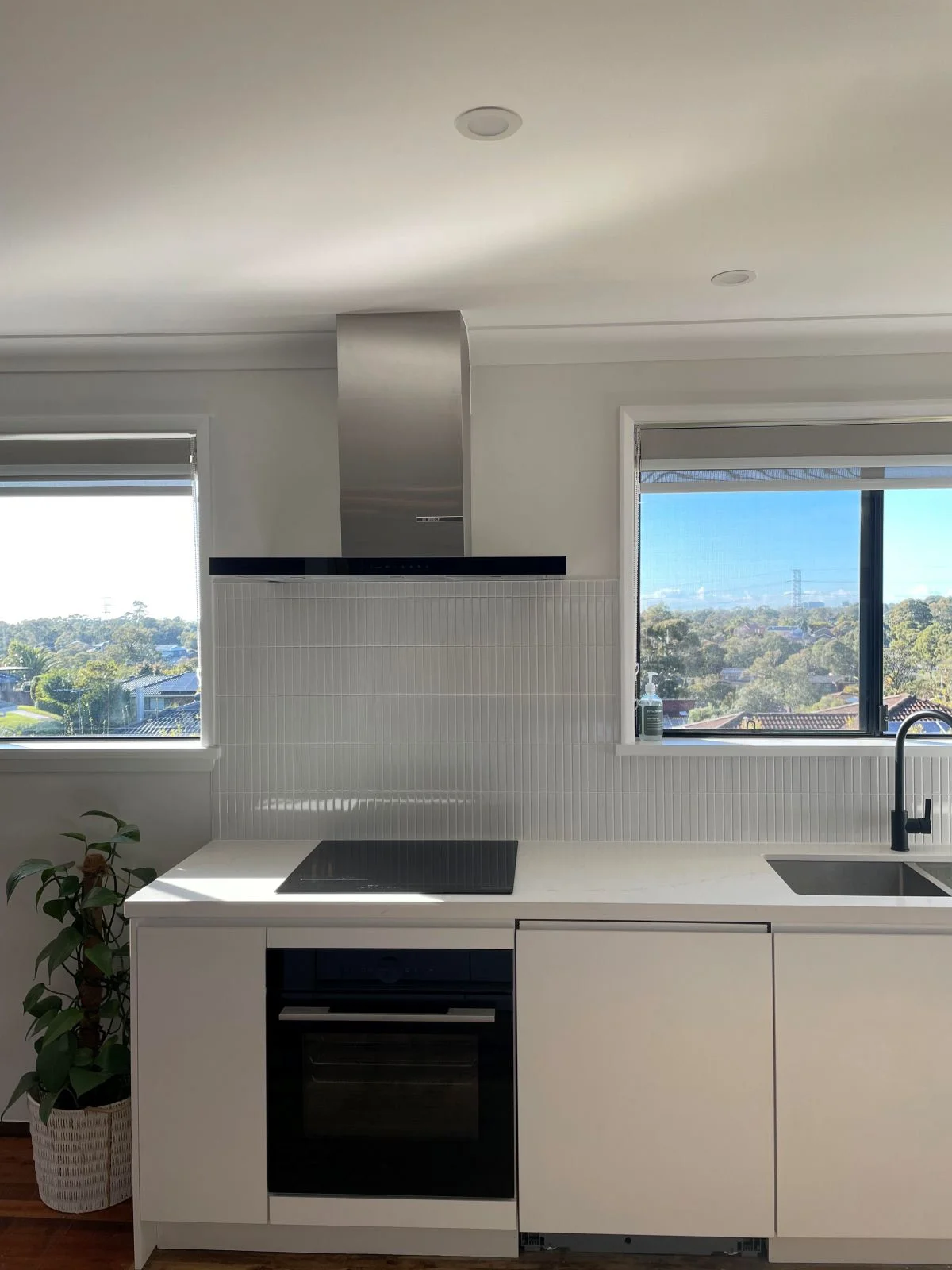DIY vs. Professional Kitchen Renovations – Which Saves More?
When it comes to updating your home, the decision to undertake a DIY kitchen renovation or hire professionals can be daunting. We weigh the costs and benefits to help you make an informed decision.
The cost of kitchen renovations can vary widely, from budget-friendly options to high-end designs. While DIY projects may seem cost-effective upfront, they can lead to costly mistakes and repairs down the line. On the other hand, professional renovations come with labor costs, but they often result in higher quality and durability.
For those considering a renovation, understanding the costs associated with DIY versus professional is crucial. We will explore the factors that influence kitchen renovations cost and kitchen renovations prices, helping you decide which path is most cost-effective for your project.
Key Takeaways
- DIY kitchen renovations can save on labor costs but may lead to costly repairs if not done correctly.
- Professional renovations offer quality and durability, potentially increasing property value.
- The average cost of DIY projects can be lower, but they often incur cost overruns.
- Professional labor rates vary, impacting the overall cost of renovations.
- Long-term savings can be achieved through professional renovations due to lower maintenance costs.
Understanding Kitchen Renovations
A kitchen renovation is more than just a cosmetic update; it’s a transformation of one of the most used spaces in your home. When considering a renovation, it’s essential to understand the scope and complexity of the project.
We will guide you through the basics of kitchen renovations, helping you make informed decisions about your project. Whether you’re looking to update your kitchen’s style, improve functionality, or increase your home’s value, understanding the renovation process is key.
What Are Kitchen Renovations?
Kitchen renovations involve making significant changes to your kitchen’s layout, design, or functionality. This can include anything from replacing cabinets and countertops to installing new appliances or reconfiguring the layout to improve workflow.
Key aspects of kitchen renovations include:
- Updating or replacing existing fixtures and appliances
- Improving the kitchen’s layout for better efficiency
- Enhancing the aesthetic appeal through new designs or materials
Common Types of Kitchen Renovations
There are several types of kitchen renovations, each with its own scope and complexity. These include:
- Cosmetic renovations, which focus on updating the look and feel of your kitchen without major structural changes.
- Partial renovations, involving updates to specific areas, such as replacing cabinets or countertops.
- Complete renovations, which entail a total overhaul of the kitchen, including layout changes and new installations.
Understanding these different types can help you determine the best approach for your kitchen design and remodeling the kitchen project.
The Benefits of DIY Kitchen Renovations
DIY kitchen renovations have gained popularity due to their potential for cost savings and personalization. By taking on a renovation project yourself, you can not only save money but also tailor your kitchen to your specific needs and tastes.
Cost Savings with DIY Projects
One of the most significant advantages of DIY kitchen renovations is the potential to save on labor costs. By undertaking the work yourself, you can save a substantial amount of money that would otherwise be spent on hiring professionals. For instance, painting your kitchen cabinets yourself can save you around $500 to $1,000, depending on the size of your kitchen.
Additionally, DIY projects allow you to shop around for materials, finding the best deals and discounts. This can lead to further cost savings, making your renovation more budget-friendly. When searching for “kitchen renovations near me,” many homeowners are looking for ways to make their project more cost-effective, and DIY renovations can offer a viable solution.
Personalization and Customization
DIY kitchen renovations offer the unique opportunity to personalize your space according to your preferences. Whether you’re looking to update your kitchen’s style, improve its functionality, or both, a DIY project allows you to make decisions on every aspect of the renovation. From choosing the perfect countertops to designing your dream cabinet layout, the control is in your hands.
This level of customization is particularly appealing to homeowners who have specific design ideas or unique needs. By taking on the project yourself, you can ensure that every detail is executed exactly as you envision it.
Learning New Skills
Embarking on a DIY kitchen renovation is not just about the end result; it’s also about the journey. You’ll have the opportunity to learn new skills, from tiling and plumbing to carpentry and electrical work. Even if you’re new to DIY projects, the sense of accomplishment you’ll feel upon completing your renovation is incredibly rewarding.
Moreover, the skills you acquire during your DIY kitchen renovation can be applied to future projects, making you more self-sufficient and confident in your ability to tackle home improvement tasks.
The Drawbacks of DIY Kitchen Renovations
While DIY kitchen renovations can be cost-effective, they come with their own set of challenges. When undertaking a DIY project, homeowners often face several drawbacks that can impact the overall success and cost of the renovation.
Mistakes and Their Consequences
One of the significant risks of DIY kitchen renovations is the potential for mistakes. Without professional experience, homeowners may make errors in measurement, material selection, or installation, leading to costly rework or even safety hazards. For instance, incorrect plumbing or electrical work can result in significant additional expenses to rectify.
- Inaccurate measurements leading to wasted materials
- Incorrect installation of fixtures and appliances
- Safety risks due to improper handling of electrical or plumbing systems
Time Commitment Required
Another significant drawback is the time commitment involved in DIY kitchen renovations. Homeowners must dedicate considerable time to planning, executing, and troubleshooting their renovation projects. This can be particularly challenging for those with busy schedules, potentially leading to prolonged project timelines and increased stress levels.
For example, a simple task like tiling can become a time-consuming project if you’re doing it for the first time.
Limited Access to Professional Tools
DIY enthusiasts often face limitations due to limited access to professional-grade tools. Professional contractors have a wide range of specialized tools that enable them to complete tasks more efficiently and to a higher standard. Without these tools, DIY projects can suffer in terms of quality and finish.
- Lack of specialized equipment for tasks like cabinet making or complex tiling
- Difficulty achieving a professional finish without the right tools
- Potential for increased project duration due to the use of makeshift or inadequate tools
In conclusion, while DIY kitchen renovations can offer cost savings, they also come with significant drawbacks, including the potential for costly mistakes, a substantial time commitment, and limited access to professional-grade tools. Homeowners should carefully weigh these factors when deciding on the best approach for their kitchen renovation.
When to Consider Hiring Professionals
When it comes to kitchen renovations, knowing when to call in the experts can make all the difference. While DIY projects can be cost-effective and fulfilling, certain situations demand the expertise, efficiency, and quality that professionals bring to the table. In this section, we’ll explore the scenarios where hiring professionals for your kitchen renovation is not just a good idea, but the best decision.
Major Renovations Requiring Expertise
Major kitchen renovations often involve significant changes such as moving plumbing fixtures, altering the layout, or even expanding the kitchen area. These projects require specialized skills and knowledge to ensure they are done correctly and safely. For instance, electrical and plumbing work must comply with local building codes and regulations, which professionals are well-versed in.
“Hiring a professional for major renovations ensures that the work is done to a high standard and meets all necessary building codes,” says a leading expert in kitchen renovations in Sydney.
Time Constraints and Busy Schedules
For many homeowners, time is a precious commodity. Kitchen renovations can be time-consuming, especially for those without experience. Professionals can significantly reduce the renovation timeframe, allowing you to enjoy your new kitchen sooner. They have the manpower and expertise to work efficiently, minimizing disruptions to your daily life.
- They can manage the project timeline effectively.
- Professionals have a network of reliable subcontractors.
- They handle all necessary inspections and compliance checks.
Complex Design Requirements
Kitchens with complex design requirements, such as custom cabinetry, intricate tile work, or unique architectural features, benefit greatly from professional input. Professionals can bring your vision to life, ensuring that every detail is executed flawlessly. They have the design expertise to advise on materials, layouts, and styles that not only look great but are also functional.
As noted by a renowned kitchen designer, “A well-designed kitchen is not just about aesthetics; it’s about creating a space that is both beautiful and functional for years to come.”
Costs Involved in DIY Kitchen Renovations
A critical step in planning a DIY kitchen renovation is determining the total cost involved. This includes understanding the various expenses that contribute to the overall budget.
Material Costs Breakdown
The cost of materials is a significant component of DIY kitchen renovations. Here’s a breakdown of typical material costs:
- Cabinets: Custom or semi-custom cabinets can range from $3,000 to $10,000 or more, depending on the material and design.
- Countertops: Prices vary widely, from $500 for basic laminate to $5,000 or more for high-end granite or quartz.
- Flooring: The cost can range from $1,000 to $3,000, depending on the type and quality of the flooring material.
- Appliances: Replacing appliances can add $2,000 to $5,000 to the total cost, depending on the brand and features.
It’s essential to research and compare prices for materials to find the best deals. Consider visiting local hardware stores or checking online retailers for competitive pricing.
Additional Expenses to Consider
Beyond material costs, there are additional expenses to factor into your budget:
- Permits and Inspections: Depending on the scope of your renovation, you may need to obtain permits, which can cost $100 to $1,000 or more.
- Tool Rentals or Purchases: If you don’t already have the necessary tools, you may need to rent or buy them, adding $100 to $500 to your expenses.
- Disposal Fees: Removing and disposing of old materials can incur additional costs, typically ranging from $200 to $500.
- Unexpected Expenses: It’s wise to budget for unexpected expenses, which can arise due to unforeseen issues during the renovation.
By understanding these costs, homeowners can better plan and budget for their DIY kitchen renovations, ensuring a successful and stress-free project.
Costs of Professional Kitchen Renovations
Labor costs and pricing structures are key components in determining the total cost of professional kitchen renovations. When hiring professionals, it’s essential to understand these costs to budget effectively for your project.
Labor Costs and Pricing Structures
Labor costs for kitchen renovations can vary significantly based on the complexity of the job, the location, and the expertise of the professionals hired. In Australia, the average hourly rate for a qualified tradesperson can range from $50 to $150 per hour, depending on the trade and level of experience. For instance, a master electrician or a plumber with specialized skills may charge higher rates compared to a general laborer.
“The cost of labor is a significant factor in kitchen renovations. It’s not just about the hourly rate; it’s about the total hours required to complete the job,” says a renovation expert. Understanding the pricing structure, whether it’s hourly or a fixed price for the project, is crucial for budgeting.
Average National Pricing Trends
National pricing trends for kitchen renovations in Australia show a wide range of costs. According to recent data, the average cost of a kitchen renovation can range from $15,000 to $40,000 or more, depending on the scope of the project. For a standard renovation, which includes updating fixtures, appliances, and flooring, the cost can be broken down into materials, labor, and overheads.
- Materials: 40% to 50% of the total cost
- Labor: 30% to 40% of the total cost
- Overheads and contingencies: 10% to 20% of the total cost
It’s essential to get quotes from multiple contractors to compare prices and services. This not only helps in finding the best value for money but also in understanding what is included in the price and what might incur additional costs.
By understanding labor costs, pricing structures, and national pricing trends, homeowners can better plan and budget for their kitchen renovation projects, ensuring they get the best outcome for their investment.
Comparing Timeframes: DIY vs. Professional
One of the key decisions in kitchen renovations is choosing between DIY and professional services, which directly influences the project duration. When considering a kitchen renovation, understanding the timeframe for completion is crucial for planning and minimizing disruptions to your daily life.
Duration of DIY Projects
DIY kitchen renovations can vary significantly in duration, depending on the scope of the project and the individual’s level of expertise. For simple updates like painting or replacing fixtures, a DIY project might take a few weekends. However, more complex renovations involving plumbing, electrical work, or custom cabinetry can extend the timeframe to several weeks or even months. It’s essential to realistically assess your DIY timeframe to avoid underestimating the project’s complexity.
For instance, if you’re searching for “kitchen renovations near me” to gather inspiration, you might find that DIY projects often require a flexible timeline to accommodate unexpected delays. This flexibility is a significant advantage for homeowners who can manage their time effectively.
Professional Renovation Timelines
Professional kitchen renovations typically follow a more predictable timeline compared to DIY projects. Contractors and renovation companies have the expertise and resources to complete tasks efficiently, minimizing delays. The average duration for a professional kitchen renovation can range from a few weeks for minor updates to several months for comprehensive overhauls.
The complexity of the design often dictates professional renovation timelines, the availability of materials, and the scheduling of subcontractors. For example, custom cabinetry or high-end finishes might require longer lead times. Nonetheless, professionals can usually provide a more accurate and reliable timeline, helping homeowners plan accordingly.
When deciding between DIY and professional kitchen renovations, it’s crucial to consider your project’s specific needs and your own availability. While DIY projects offer flexibility, professional renovations provide predictability and expertise. Understanding these factors will help you make an informed decision that aligns with your renovation goals and timeline.
Quality of Work: DIY vs. Professionals
When it comes to kitchen renovations, the quality of work can significantly differ between DIY projects and professional services. The distinction is crucial, as it affects not only the aesthetic appeal of your kitchen but also its functionality and longevity.
Craftsmanship and Attention to Detail
Professional kitchen renovation services bring a level of craftsmanship and attention to detail that is often challenging to replicate with DIY projects. Professionals have the training and experience to handle complex tasks, ensuring that every aspect of the renovation, from cabinetry to electrical work, is executed with precision.
In contrast, DIY projects can suffer from a lack of attention to detail, particularly if the homeowner is inexperienced. While DIY can be cost-effective and rewarding, the risk of mistakes can compromise the overall quality of the renovation.
Warranty and Long-lasting Solutions
One of the significant advantages of hiring professionals for your kitchen renovation is the warranty that typically accompanies their work. This warranty provides peace of mind, knowing that any issues arising after the completion of the project will be addressed without additional costs.
Furthermore, professionals are more likely to implement long-lasting solutions, having access to high-quality materials and the expertise to install them correctly. This not only enhances the durability of your kitchen renovation but also reduces the need for future repairs or replacements.
In summary, while DIY kitchen renovations can be appealing, the quality of work provided by professionals is often superior due to their craftsmanship, attention to detail, and the warranties they offer. When considering a kitchen renovation, it’s essential to weigh these factors against your budget and personal preferences to make an informed decision.
- Professionals offer superior craftsmanship and attention to detail.
- Warranties provided by professionals offer peace of mind and protection against future issues.
- Long-lasting solutions implemented by professionals enhance durability and reduce future maintenance.
Real-Life Examples of DIY vs. Professional Renovations
The decision to undertake a DIY kitchen renovation or hire professionals is a crucial one, with various factors to consider. To help make this decision, let’s examine some real-life examples and case studies that highlight the outcomes of both approaches.
Success Stories of DIY Projects
Many homeowners have successfully completed their kitchen renovations using the DIY approach. For instance, a family in Melbourne undertook a comprehensive renovation, including new cabinetry, tiling, and flooring, entirely on their own. They reported a significant cost saving and a sense of accomplishment.
Some key benefits reported by DIY homeowners include:
- Cost savings: By avoiding labor costs, homeowners can allocate more funds to materials and fixtures.
- Personalization: DIY projects allow homeowners to incorporate personal touches and unique elements.
- Learning experience: Homeowners gain new skills and knowledge throughout the renovation process.
Case Studies of Professional Work
On the other hand, hiring professionals for kitchen renovations also has its advantages, as seen in various case studies. For example, a homeowner in Sydney hired a professional contractor to renovate their kitchen, resulting in a high-quality finish and timely completion.
Some benefits highlighted in these case studies include:
- Efficient project management: Professionals manage the project timeline, ensuring it stays on track.
- High-quality craftsmanship: Experienced contractors deliver superior workmanship.
- Warranty and support: Many professional services offer warranties on their work, providing peace of mind.
While both DIY and professional renovations have their merits, the choice ultimately depends on the homeowner’s skills, budget, and preferences. By examining these success stories and case studies, homeowners can make a more informed decision that suits their needs.
Tips for a Successful Kitchen Renovation
For homeowners in Sydney undertaking small kitchen renovations, the journey to a dream kitchen involves careful planning and execution. A well-planned renovation not only enhances the aesthetic appeal of your kitchen but also improves its functionality.
Planning and Design Essentials
Effective planning is the backbone of any successful kitchen renovation. It begins with defining your project’s scope, including the materials, fixtures, and layout changes you wish to implement. Consider the workflow and ergonomics of your kitchen, often referred to as the “work triangle,” which connects the sink, stove, and refrigerator. Ensuring that this triangle is efficient will make your kitchen more functional.
- Measure your space accurately to determine the best layout.
- Choose materials and finishes that are durable and easy to maintain.
- Consider the lighting needs of your kitchen, including task lighting for work areas.
Budgeting for Your Renovation
Budgeting is a critical aspect of your kitchen renovation project. It involves not only the cost of materials and labor but also contingency funds for unexpected expenses. For small kitchen renovations in Sydney, setting a realistic budget helps in making decisions that align with your financial capabilities.
- Research and gather quotes from multiple suppliers and contractors.
- Allocate 10-20% of your budget for contingencies.
- Prioritize your needs over your wants to stay within budget.
By focusing on thorough planning and budgeting, you can achieve a successful kitchen renovation that meets your needs and enhances your home’s value. Whether you’re doing it yourself or hiring professionals, these tips will guide you through the process, ensuring a smooth and satisfying experience.
Making the Final Decision: DIY or Professional?
When remodeling the kitchen, one of the most critical decisions is whether to opt for a DIY approach or hire professionals. To make an informed decision, we need to assess our skills and resources.
Assessing Personal Capabilities
We should consider our experience with DIY projects, the complexity of the renovation, and the time we can dedicate to the task. Assessing our skills will help us determine whether we can handle the project or if it’s better to seek professional help.
Evaluating the Best Approach
Weighing our options is crucial to achieving the best outcome. We need to consider factors such as budget, timeline, and the quality of work desired. By carefully evaluating these factors, we can make a decision that suits our needs and ensures a successful kitchen renovation.
Ultimately, the decision to DIY or hire professionals depends on our individual circumstances and priorities. By assessing our skills and weighing our options, we can make an informed decision that results in a beautiful and functional kitchen.
FAQ
What is the average cost of kitchen renovations in Sydney?
How long does a typical kitchen renovation take?
What are the benefits of hiring professionals for kitchen renovations?
Can I save money by doing my own kitchen renovation?
What are some common mistakes to avoid in kitchen renovations?
How do I determine the best kitchen design for my needs?
What is the cost of small kitchen renovations in Sydney?
Are there any additional expenses to consider in kitchen renovations?
Ready to Get Started?
If you’re planning a bathroom renovation, ANE Constructions can offer you expert advice and a high-quality installation. Contact us today to get started on your dream bathroom!
Looking for a tile supplier in sydney?
Our tile trade supplier is Beaumont Tiles, Casula. Visit their website or drop in and chat with them about your tile and bathroom accessory selection needs.

